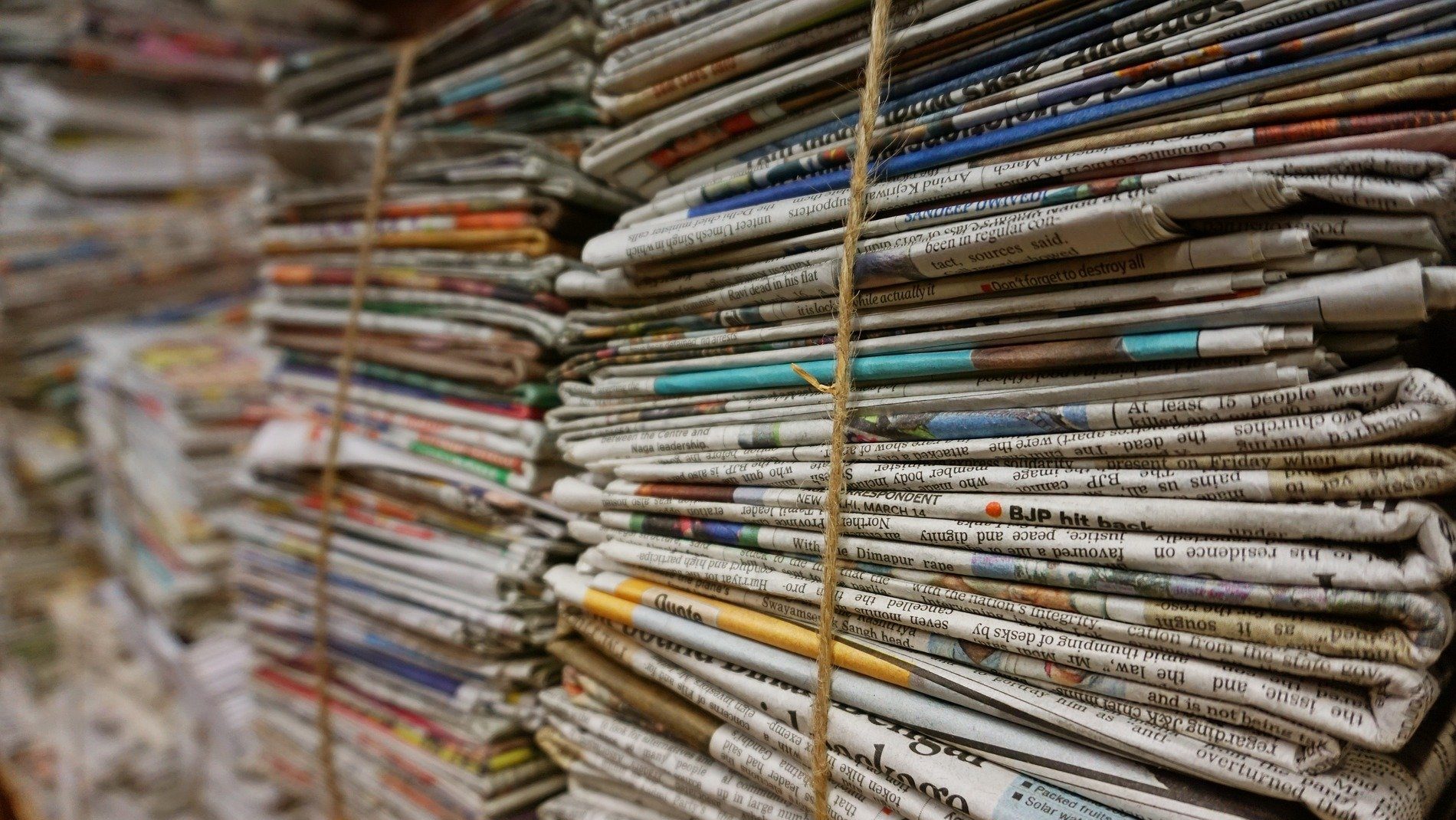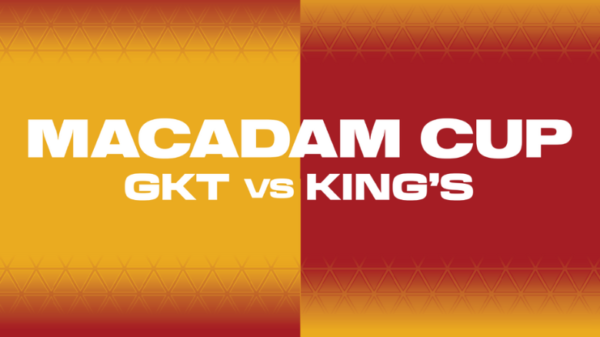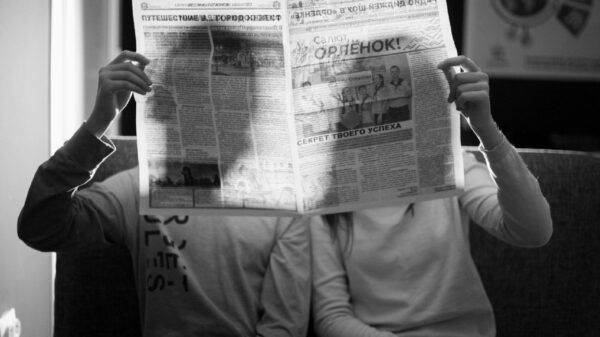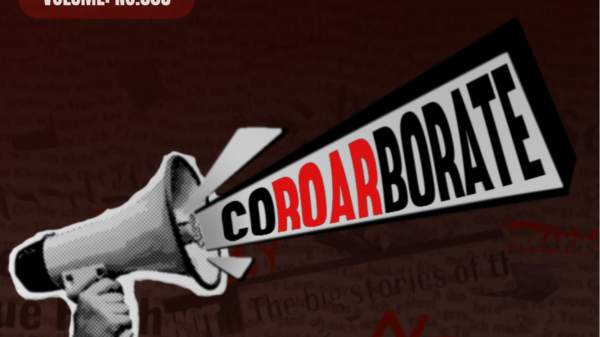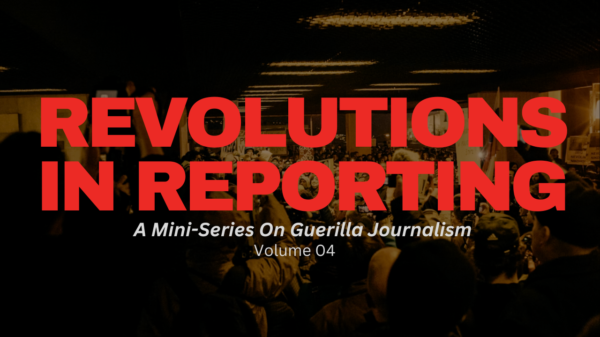Roar writer Chloe Ferreux on crowd-funding endeavours to improve the state of French media and whether these attempts will be enough to invoke real change.
Freedom of the press and the right to vote are two sides of the same coin: democracy. Without both, the system cannot evolve in a healthy way. Therefore, the greatest risk for the media today would be a war between power and money. With the emergence of shareholders in the French press, 9 billionaires own 90% of the French press titles; and with Vincent Bolloré’s recent ambitions to acquire the M6 group and Europe 1, already owning Canal Plus and C8, the monopoly of the information market leaves many questions unanswered.
In the twenty-first century, there are more news producers than ever. France alone has over 4,000 press titles, 100 radio stations, and hundreds of TV channels. However, the media have never been so weak. Newspapers are unable to monetise their digital audiences. Whether or not they are aware of this weakening, citizens are placing less and less trust in the traditional media.
Julia Cagé explains this phenomenon in an interview with Alexandre Vasseur for the digital version of Les Inrockuptibles in 2015: “Trust in the media has never been so low: only one in four French people believe in their integrity, whether it be radio, press, television or especially the Internet. The reason? These media are not truly ‘independent’. Just as we regulate the financing of political life because we consider that democracy is ‘one vote equals one vote’ and not ‘one dollar equals one vote’, so we cannot tolerate that media power is in the hands of a few rich millionaires who buy tools of influence.”
Those who own the press are less and less shy about censoring subjects and authoritarian drifts, thus authorising what can or cannot appear in the headlines of a democracy. The purchase of newspapers is proving to be an effective tool of influence, allowing a concentration of power that rightly disturbs the population and undermines the barometer of trust. Majority shareholders using newspapers to serve their personal, political and economic interests is gradually proving to be a real problem for French democracy; without an independent fourth estate, who will help critical opinion to develop?
A financially-motivated media crisis
Reforming the media economy could be an alternative by which to prevent major titles from losing market share and eventually becoming the property of businessmen. Indeed, in an interview conducted by Isabelle Hanne, Julia Cagé argues: “The central point is to consider political and general information as a public good, part of the knowledge economy sector. […] It is a very vast field: 10% of GDP, if we count higher education and research. In all these areas, apart from the media, we have accepted the idea that it is a particular good and that the state must intervene in its own way to help produce it. […] Information cannot be produced by the state. It is therefore necessary to think of forms of state intervention that are completely neutral with regard to the medium and the content.”
The idea would therefore be to create a link between the public and private sectors. In France, a press company is typically part of a commercial company subject to the law of profit. The media can therefore be bought, sold, and above all, sold off. Particularly in the United States, this has led to increasing competition between various media platforms, which, subject to the laws of the market, have to reduce costs and cut the size of their press rooms. This has a direct impact on the quality of information, which cannot resist the economic pressure imposed on it.
Finding an economic model that would reduce the influence of businessmen on the press would also save the independence of information and hinder censorship. In a democracy, citizens must have independent, democratically governed media that produce quality information, but this can only be achieved if new regulations are introduced into the market.
Un bout du Monde: Capitalism, crowdfunding, democracy?
This is where research by French economist Julia Cagé comes in. By elaborating a system of media company statutes, she attempts to find a middle ground between a democratic and financial answer. It acts directly on the security of the financing of media actors by freezing their capital and proposes to frame the decision-making power of external shareholders by law, notably with the adoption of binding statutes.
Thus, power would no longer be monopolised by large shareholders, but rather shared with employees and readers, allowing the redistribution of decision-making powers within the press. The status of a non-profit media company would therefore rest somewhere between civil servant and a joint-stock company. This would guarantee the quality of the media by ensuring the stability of their equity and the sustainability of their investments. Moreover, this reduction in the decision-making power of the largest shareholders gives a counter-power to readers and journalists, limiting the effects of censorship on news subjects. This would allow a democratic reappropriation of information on the demand side in France, but also within editorial offices themselves.
The Internet has enabled the development of an integrating tool: crowdfunding. As Julia Cagé explains in an interview with French newspaper Libération: “In the United States and in France […] we have more and more people, small donors, crowdfunders who want to participate in the financing of the media and their governance. […] My conviction is that, in order to save the media and respond to the democratic crisis, we need to invent a new system based on power-sharing and renewal.”
As the media, readers and employees who become donors could become shareholders in press agencies and thus have a right of review and decision. The creation of a new legal framework would evolve the overall situation more favourably on the side of editorial boards, allowing them to limit the power of major shareholders while giving strength to the smaller ones.
To put the theory into practice, Julia Cagé decided to create Un bout du Monde. It allows each member to have one vote in the general assembly of participating press titles for a €5 donation on KissKissBankBank. The aim? To provide a democratic guarantee in the management of the media.
Contributing to the independence of the media: a citizen’s duty?
The first objective of the association was to raise €150,000 in order to facilitate the beginnings of a tool that could be integrated into the Le Monde Group. This crowdfunding campaign, which took place on KissKissBankBank, not only gave the association access to the capital of the Le Monde Group but also provided it with the financial means for future interventions within the press. Thus Xavier Niel and Matthieu Pigasse, who control 25% of Le Monde’s capital, will be forced to negotiate with the association in the future. The first action will be to secure the capital of Le Monde Group by transferring it to an endowment fund. This project, imagined by Xaviel Niel and taken up by Matthieu Pigasse, is still under consideration. The results of Un Bout du Monde‘s impact will come in due course, but more than €155,821 were raised during the association’s first action.
As Cagé assures her interviewer: “Citizens, when they are proposed to be involved in the ownership and governance of new news media, respond. […] For the traditional newspaper we can think of a more democratic governance that involves citizens, and they will respond too. All they are asking is to trust the information.”
While crowdfunding may become a political weapon for the next few years, however, it is based on variable foundations. Online subscription models have long been a failure for the media. As early as 2005, the Los Angeles Times and CNN opted for a fully paid model, which they abandoned extremely quickly after registering a considerable drop in traffic during the switchover to paywalls. This leaves much to be desired in terms of public involvement in participatory funding, with the exception of an elite with the means to invest in Un Bout du Monde, which will actually take part. Fundraising for the association’s first mission was actually very slow. In almost half a year, only 2170 people took part in the project. The money raised was in the thousands, but is a far cry from the millions needed to intervene in the shareholding of all French press groups. Moreover, fewer and fewer people read traditional media. Hoping that citizens will invest in shares in addition to paying for subscriptions is utopian.
A purely economic response?
How can the media market be regulated with the simple intervention of a crowdfunding platform such as KissKissBankBank? Of course, Un Bout du Monde represents the beginnings of what could lead to future media independence. Economic intervention alone will not be enough. Market regulation by the state in France must also be a priority; and for that, we must go through the law. Journalists should have the right to vote on whether or not to accept their new main shareholder when their title is sold. Prohibition of media concentration should also be a priority of the culture minister. If we want media organisations to be sustainable over time, we need a model that is much more reader-based.
Democratizing media ownership remains extremely complex in an environment where citizens are increasingly disinterested in traditional media titles. In January 2020, 41% of French people said they had very little interest in news. The disinterest of the younger generation does not help. Among French people aged 18 to 24, only 49% are interested in news in all media. How can we reconnect citizens to information from which they seem to be increasingly detached? This is the question that could provide a sociological response to the economic one. Among the possibilities already introduced: the development of media education or a greater presence of traditional media on the digital platform are two necessary steps in the right direction.
This is a solutions journalism article produced during the 2021 SoJourn write-a-thon. Solutions journalism is investigative reporting on responses to social issues. Learn more about it here.

